Sustainability at JCU
JCU recognises that sustainability is fundamental to a thriving society and is committed to the pursuit of more sustainable ways of living.
The United Nations defines sustainability as ‘meeting the needs of the present without compromising the ability of future generations to meet their own needs’.
This view of sustainability continues to shape JCU’s strategic goals and define its values.
Commitments to sustainability
JCU's sustainability statement is an expression of the University's intention to contribute to the economic, environmental and social wellbeing of people in northern Queensland and the Tropics. It formalises the University's commitment to weave sustainability into its research, teaching and operational efforts, along with the many aspects of university life and in the broader community.
This is reinforced by JCU's commitment as a signatory to the Talloires Declaration, actioned in 2013. The declaration was originally created in 1990 by university leaders and environmental experts as a consensus statement for embedding sustainability in the teaching, research, operations and outreach functions of universities.
Sustainability in review: 2022
Help us celebrate sustainability in action, through a showcase of initiatives to further progress JCU towards its sustainability goals.
Our programs, events and news stories highlight the successes achieved in 2022, despite the challenges faced. JCU reached significant milestones, reconnected campuses and shared remarkable insights with the broader community.
Performance measures
JCU is motivated to refine its sustainability performance, with advancements recognised by university performance assessment metrics including the Times Higher Education Impact Rankings and QS Sustainability Rankings.
Our strong performance is assessed on quality, relevance and impact.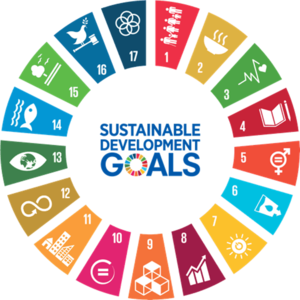
Times Higher Education Impact Rankings
Universities are measured by their pursuit of the United Nations’ Sustainable Development Goals through the Times Higher Education Impact Rankings. First published in 2019, these rankings use weighted performance indicators to compare universities in sustainable research, stewardship, outreach and teaching.
QS Sustainability Rankings
These rankings are comprised of indicators designed to measure an institution's ability to tackle the world’s greatest environmental, social and governance challenges. Indicators include environmental research and education, health and wellbeing, knowledge exchange, employability and outcomes, equality and impact of education.
Review JCU's latest rankings in these sustainability performance measures.
Building design and construction
JCU has invested in several important initiatives to create more environmentally sustainable campuses and actively pursue its commitment to sustainable development.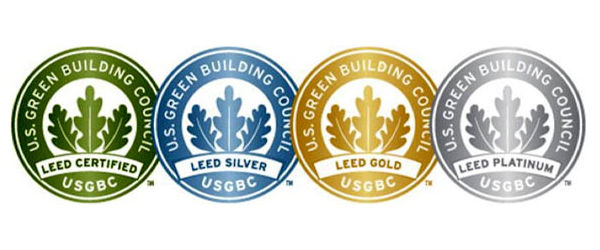
LEED Gold is a standard under the Leadership in Energy and Environmental Design (LEED) international sustainable building certification program .
The Science Place on JCU's Bebegu Yumba campus in Townsville was the first educational building in Australia to achieve the standard of LEED Gold.
On JCU's Nguma-bada campus in Cairns, the Ideas Lab was also designed and constructed to meet LEED Gold standards, as a partner to the Science Place for innovation and sustainable development.
The most recently completed JCU building designed and constructed to meet LEED Gold standards is the new Burralga Yumba student accommodation complex on JCU's Bebegu Yumba campus in Townsville.
Find out more about the sustainability credentials of JCU's Science Place, Ideas Lab and Burralga Yumba buildings.
Infrastructure improvements
JCU is committed to improving energy and water efficiency on campus, with developments focused on reducing environmental, financial and social impacts.
Efficient air conditioning
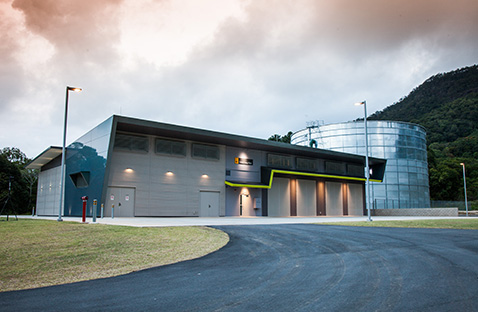
JCU uses energy-efficient chilled water air conditioning systems to keep buildings across its Cairns and Townsville campuses cool in the tropical heat.
The systems feature a 12.5 megalitre water tank in Townsville and another 9 megalitre tank in Cairns.
Renewable energy generation
Newly constructed or renovated buildings like the Ideas Lab in Cairns and the Science Place in Townsville have been designed to meet stringent efficiency benchmarks, with features including renewable energy generation through solar power systems.
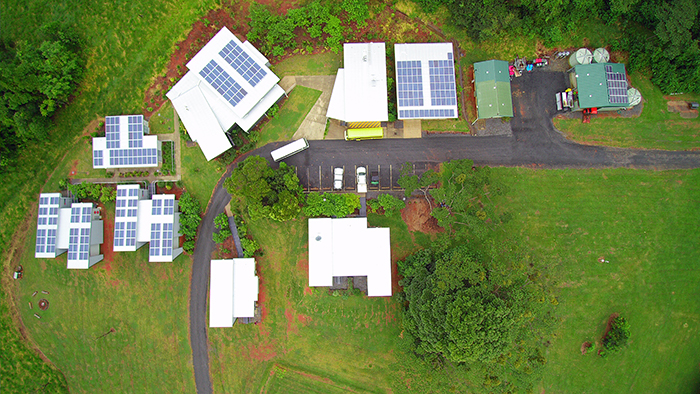 This adds to the sizeable solar power generated by existing installations at the Daintree Rainforest Observatory and Orpheus Island Research Station.
This adds to the sizeable solar power generated by existing installations at the Daintree Rainforest Observatory and Orpheus Island Research Station.
Energy monitoring
Energy use is minimised in all JCU campuses using the latest energy management software. Controllable power is scheduled to match the use of teaching spaces and is flexible to daily weather conditions for maximum efficiency.
This technology is a powerful tool for evaluating JCU’s building energy use and helps identify opportunities to improve efficiency.
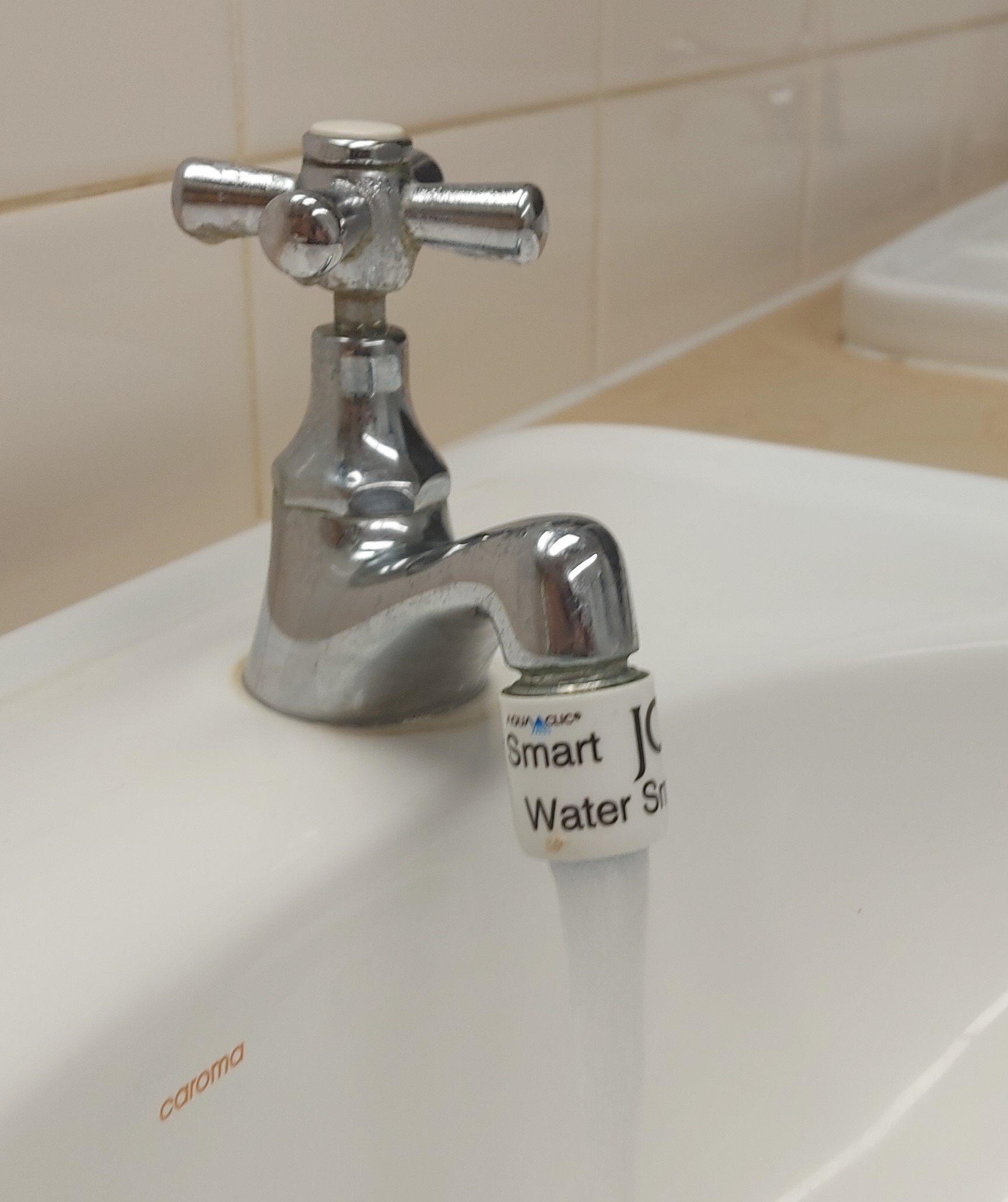
Demand management
Minimising the need for water use on campuses is a long-term strategy, achieved by establishing water-wise, drought resistant landscapes that don’t require irrigation.
Other measures include installing water-efficient taps, toilets and showers, soil wetting agents, controllable irrigation systems and education programs to minimise water and energy use.
Capture, storage and reuse
JCU captures rainwater and stores it for reuse in several tanks holding tens of thousands of litres. It’s used primarily for garden irrigation and to supplement campus water requirements.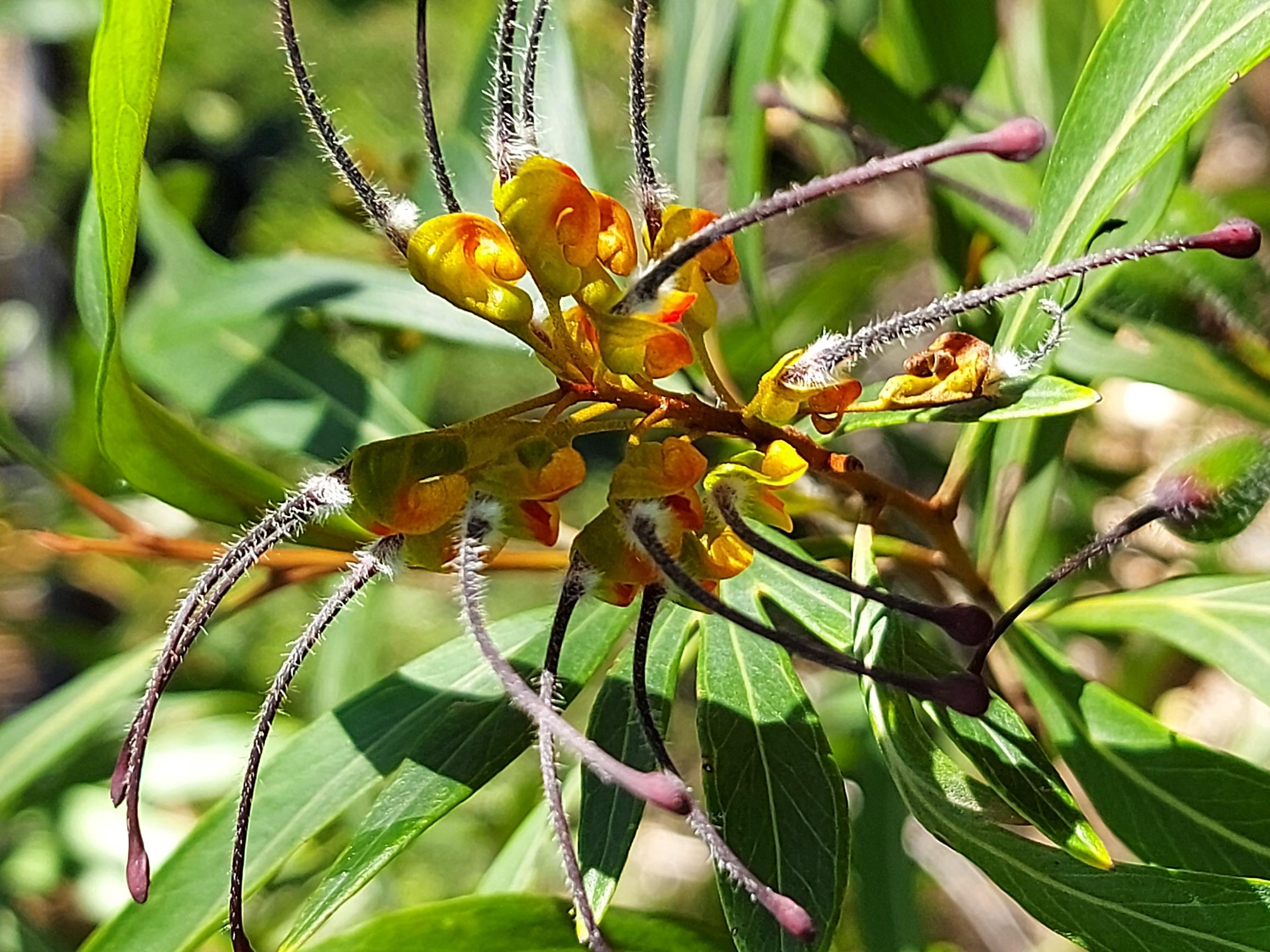
Water-wise irrigation
Drip systems have been installed in many locations, including near the Burralga Yumba student accommodation building, Science Place, Eddie Mabo Library and around Central Plaza on the Bebegu Yumba campus in Townsville. These systems use more than 120 R-Van Rainbird irrigation heads, with a plan to roll out 150 more by 2025.
In the campus revegetation nursery shade house, overhead sprinklers have also been replaced by drippers.
Research and collaborations
JCU works with many partner universities, industry groups and government bodies to outwork broader state-wide, national and international initiatives.
The State of the Tropics project brings together leading research institutions from across the tropical world to assess the state of the region and to examine the implications of the immense changes the region is experiencing.
 The latest State of the Tropics assessment demonstrates that while nations in the region have made extraordinary progress in recent decades, significant challenges remain. There are increasing pressures on the environment, poverty remains rife in many regions, and many nations suffer from poor health, education outcomes and governance issues.
The latest State of the Tropics assessment demonstrates that while nations in the region have made extraordinary progress in recent decades, significant challenges remain. There are increasing pressures on the environment, poverty remains rife in many regions, and many nations suffer from poor health, education outcomes and governance issues.
Rapid population and economic growth mean that the region's influence is set to rise dramatically. By 2050, the region will host most of the world's people and two-thirds of its children. The nature of the region's growing influence, and its global implications, will depend on how it addresses its many challenges, and whether it realises its potential and opportunities.
On-campus initiatives
Through its TropEco program, JCU encourages staff and students to adopt sustainable practices and help the University achieve its environmental sustainability goals.
It creates awareness and action through education campaigns, local projects and awards to celebrate outstanding contributions to sustainability.
Recycling
Colour-coded bins for paper, metal and glass container recycling helps minimise the amount going into general waste.
Electronic waste including computers and other digital equipment, along with fluorescent lighting tubes are also collected and recycled. 
Composting
JCU uses Bio-Regen and Groundswell systems on-campus turning food waste from accommodation and restaurant areas into compost.
Green waste is also processed onsite for use as compost and mulch on campus and community gardens to improve plant and soil health.
JCU encourages staff and students to choose transport options that involve active travel, like walking, running, skating and cycling to and from campus. 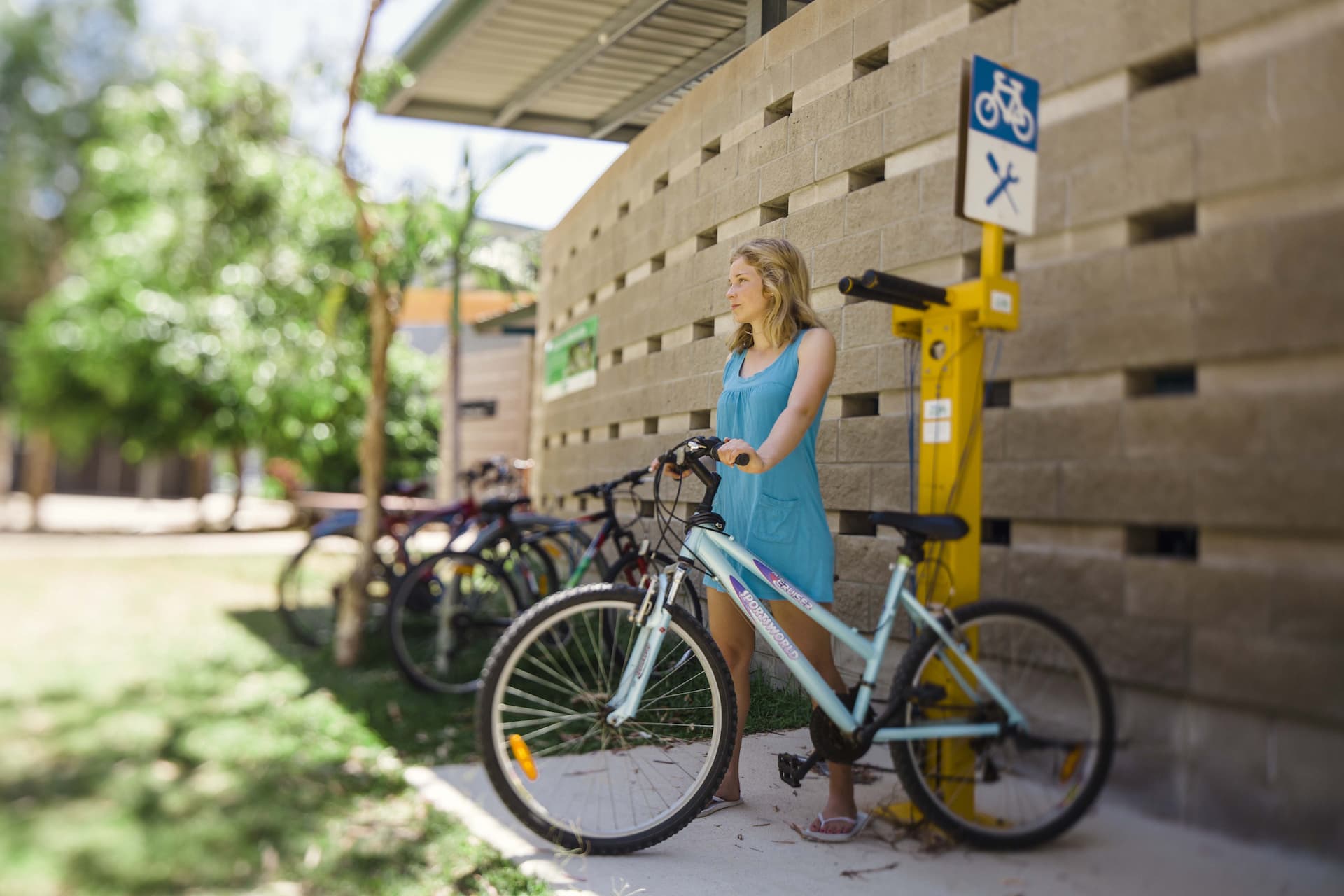
Campus facilities
Dedicated areas for bicycle parking are conveniently located across Cairns and Townsville campuses, plus showers and other personal amenities for staff and students. Secure, swipe-access end of trip facilities are also available on campus in Townsville.
Transport services
Townsville and Cairns campuses can be accessed via public transport services, while Townsville also offers electric scooter hire and an electric vehicle charging station.
TropEco’s Green Bike Fleet bicycle refurbishment program has given new life to hundreds of abandoned or donated bicycles.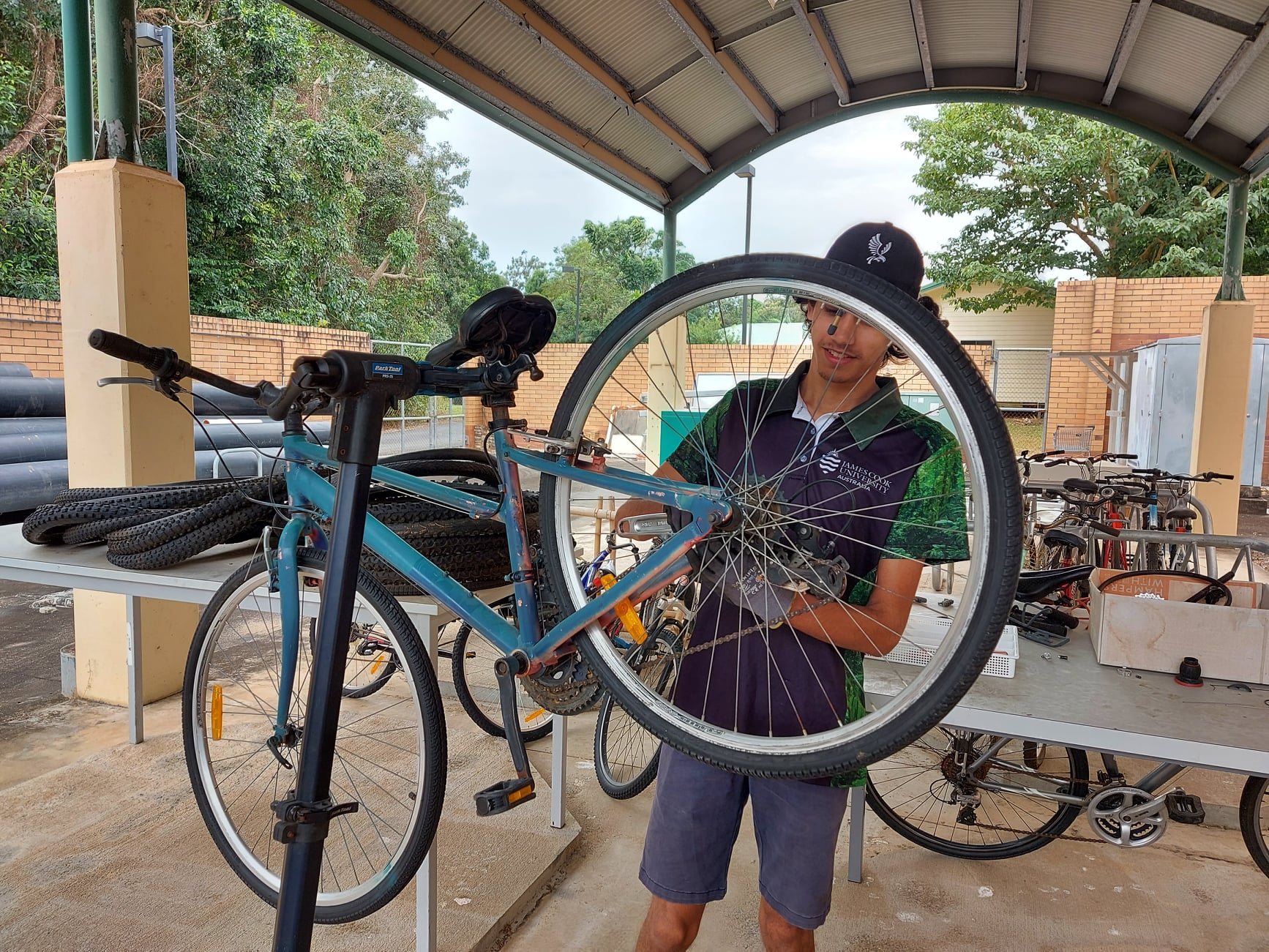
Collection and reuse
With support from JCU’s Student Association and Bicycle Owners Group, TropEco works with teams of student mechanics to transform them into quality, affordable second-hand bicycles for students.
Bikes are available for purchase usually during Orientation Week, or drop by the JCU Bike Workshop on your campus to check what's available.
Repairs and maintenance
Operating on Townsville and Cairns campuses, the program also offers low-cost bicycle servicing and maintenance for staff and students from the JCU Bike Workshop.
Watch the Green Bike Fleet video to find out more about how the program works.
Scooter hire
Beam electric scooters are available for hire on the Bebegu Yumba, Douglas campus.
Vehicle charging
An electric vehicle charging station for is available for students, staff and visitors on the Bebegu Yumba campus in Townsville. Supplied and maintained by Yurika, it's centrally located near the Clinical Practices Building.
Insect biocontrol
JCU is moving away from a reliance on pest insect control using chemical pesticides, towards a more ecologically sustainable method, biological controls. This has been implemented over the Bebegu Yumba campus for three years, in the greenhouses and plant nurseries and continuing in landscape gardens.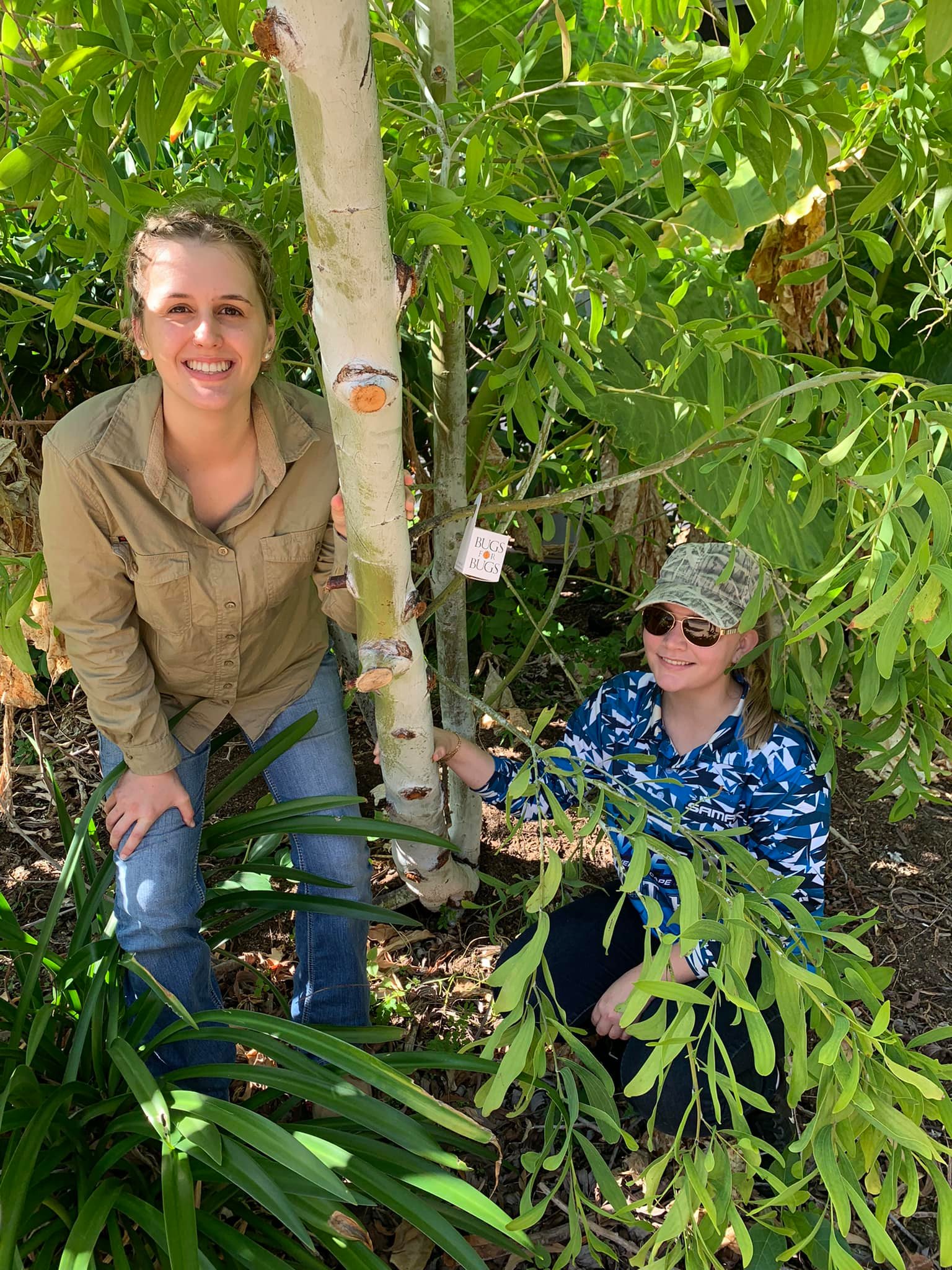
On the Nguma-bada campus biological control insect species have been successfully used on a indoor vertical garden to control aphids, in a situation where it was not possible to use chemical controls without decreasing the air quality of the facility.
Invasive species control
Each year JCU TropEco and Estate Directorate staff collaborate with Queensland Parks and Wildlife service and local contractors to control introduced plant and animal species on the campus.
This collaborative work manages invasive species on JCU owned and adjacent land. Local TAFE colleges also use this opportunity to train horticulture students in weed management on the JCU campuses in a mutually beneficially collaboration.
Collaborative monitoring for invasive insect species
18th March 2022 - JCU hosted the Australian Department of Agriculture, Water and the Environment staff, and Biosecurity Australia staff in collaboration with students studying a Biological Invasions subject with Associate Professor Lori Lach.
The team surveys the JCU community garden for invasive insect pests damaging to agriculture crops. Monitoring traps were placed in the garden to survey insect species for a period after which they were removed. Fortunately, no pests of significance were recorded.
Find out more on the TropEco Facebook page.
Sustainable landscaping public tours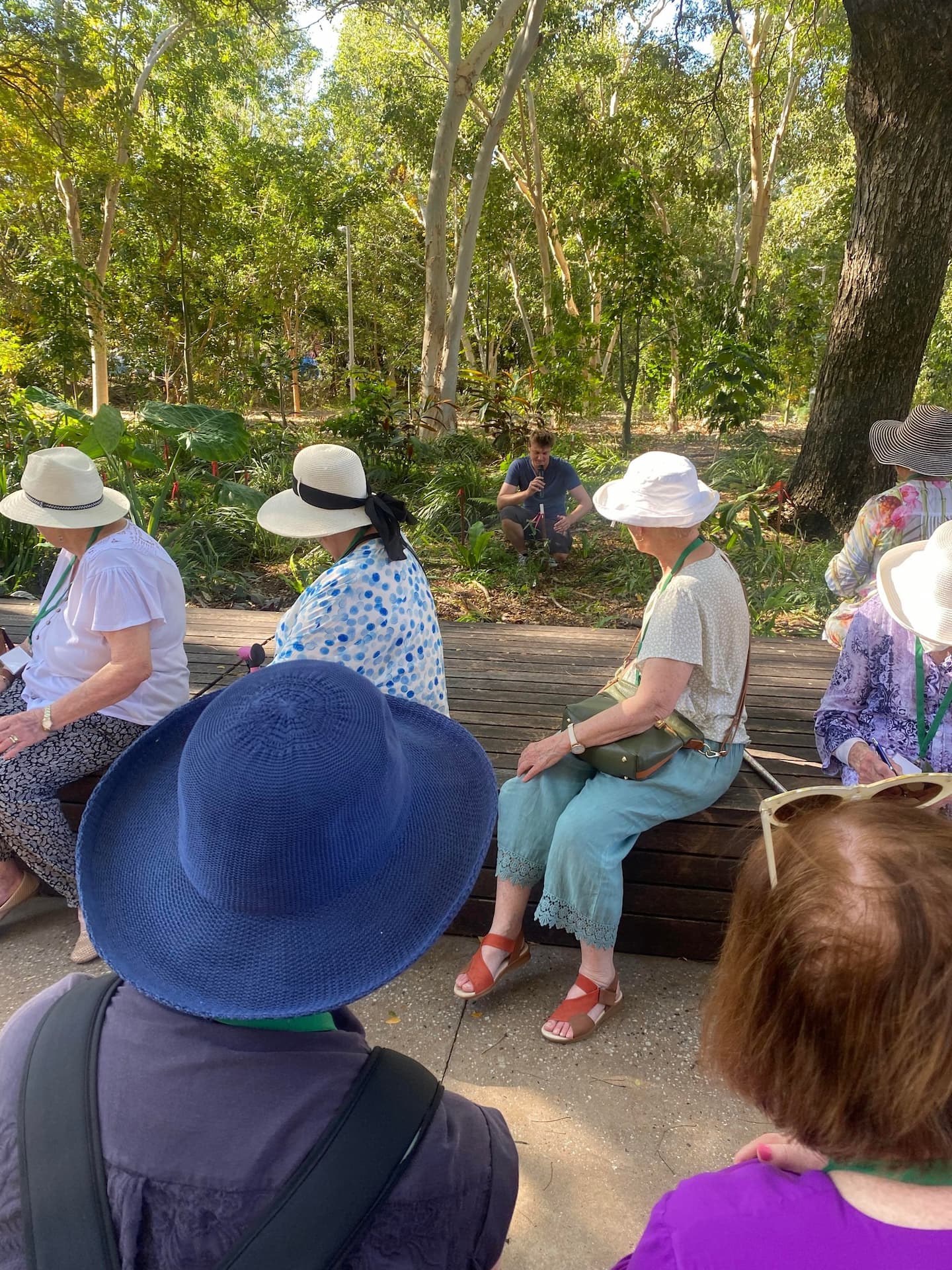
- June 2021 – TropEco hosted 75 St Benedict’s Catholic School students on a guided tour of the JCU Rotary Sunshine Community Garden. Students learnt about healthy tropical gardening, crop rotation, and companion planting.
- May 2022 - TropEco Campus Flora tour - TropEco conducted a guided tour of the Bebegu Yumba campus sustainable landscape garden conservation initiatives
- September 2022 - TropEco hosted a tour for over 100 delegates of The Garden Clubs of Australia Inc AGM & National Convention, viewing JCU’s threatened species and myrtle rust conservation programs on the Bebegu Yumba Townsville campus. Attendees were shown JCU is working towards a greener and more sustainable landscape, as well as conserving some of the rarest plants in Australia along the way.
- October 2022 – TropEco staff provided an educational ecology tour with Junior Landcare, to discuss the plants and animals of their St Benedict's Catholic School riparian site.
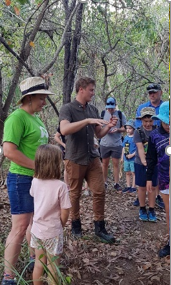
JCU Spring Environmental Fest
30 members of the Cairns community attended Spring Environmental Fest at the JCU Cairns community garden on 23 September 2021. JCU postgraduate student Holly Farnan spoke to attendees about her research into Australian native bees and the challenges they are facing. Attendees also helped build insect hotels for the community garden and learned about growing fruits and vegetables in the tropics.
JCU Environment Week
During JCU Enviro Week from 16 to 9 August 2021, the Bebegu Yumba campus community participated in a tree planting event at Wadda Mooli creek and an open day working bee at the rotary sunshine community garden.
In campus activities on the JCU Cairns Nguma-bada campus, students, staff and members of the public learned about recycling, planting trees, tropical gardening in the community garden, campus rubbish clean ups and more.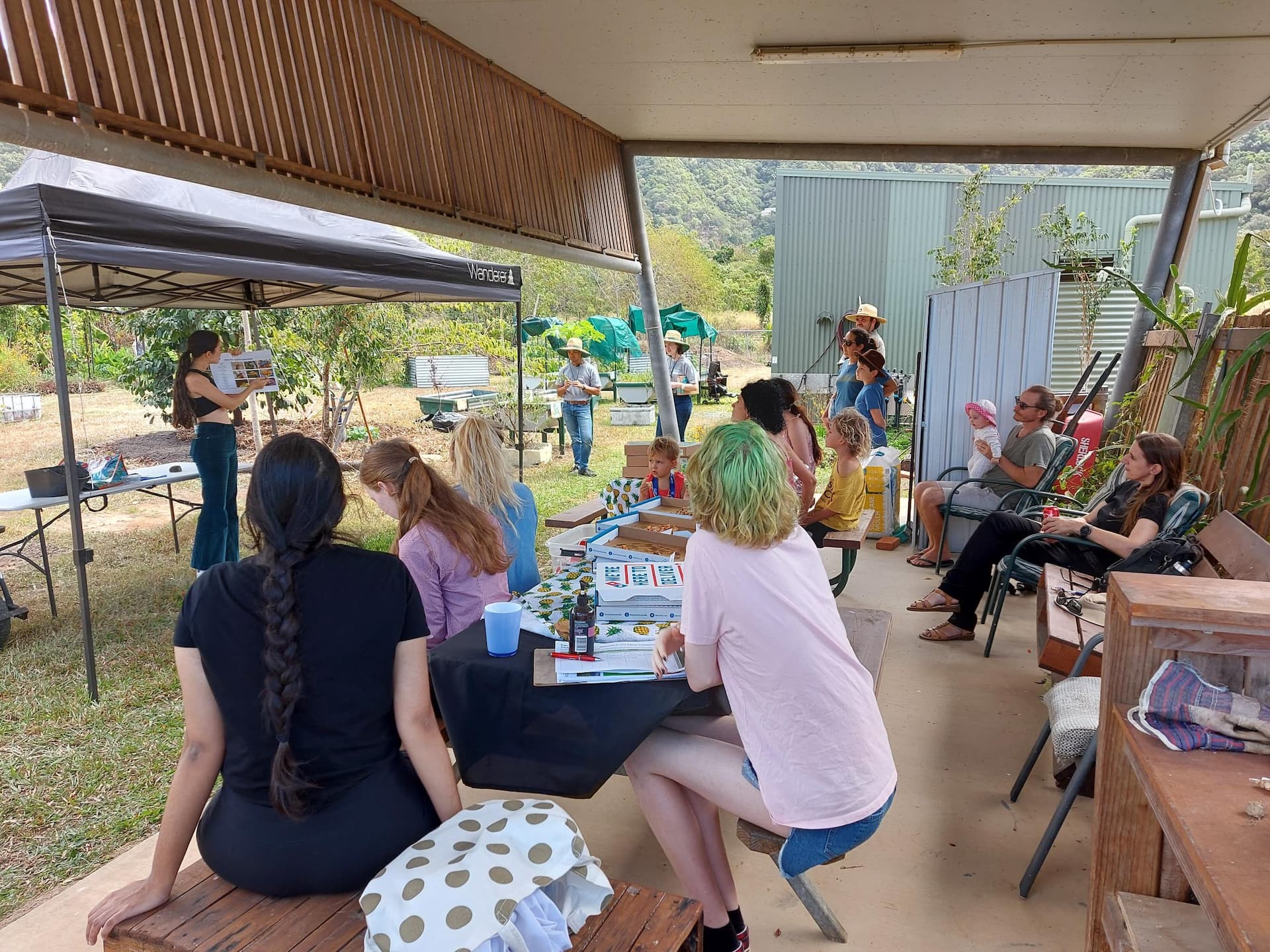
Ecofiesta - community outreach
JCU has been involved in supporting the Townsville and Cairns communities EcoFiesta events for several years.
At the 2022 Townsville Ecofiesta, TropEco showcased work towards a more sustainable environment on campus, through discussing with the public its revegetation efforts, sustainable landscaping, wildlife monitoring, and waste reduction projects. In addition to this our staff presented on sustainable ecological landscaping, presenting on not only how JCU has increased its sustainability, but also how members of the public could.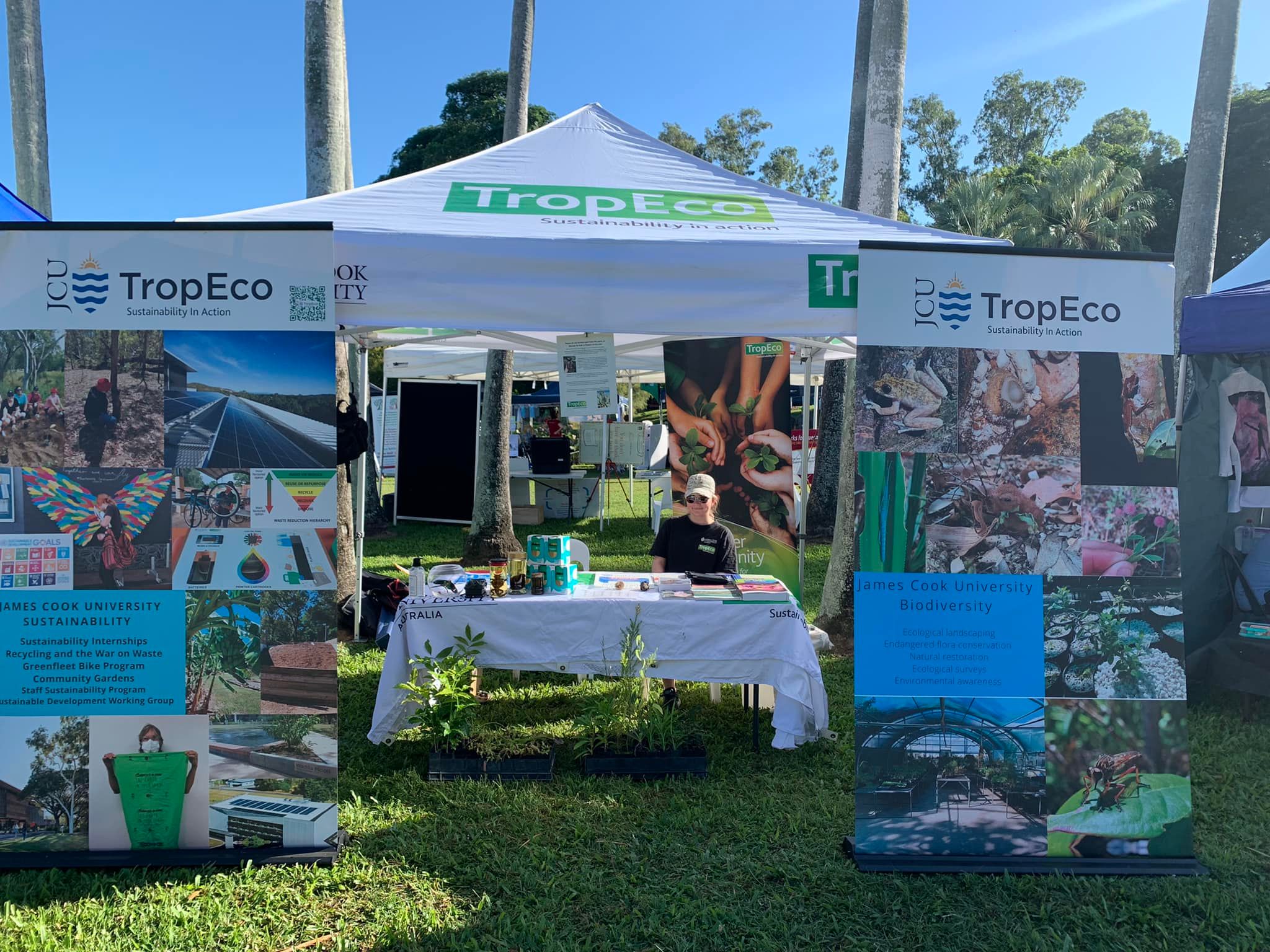
For the 2022 Cairns Ecofiesta TropEco collaborated with Lisa Law - Tropical Urban Design Lab, showcasing sustainable urban design, and Professor Nico Adams from the JCU College of Science and Engineering showcasing innovative sustainable technologies in solar power and house design.
National Tree Day
JCU celebrated National Tree Day on 18 June 2022 at the Townsville Bebegu Yumba campus with a collaborative event for the JCU community and public organised by TropEco, The JCU Zoology Society and The JCU Sunshine Community Garden Club.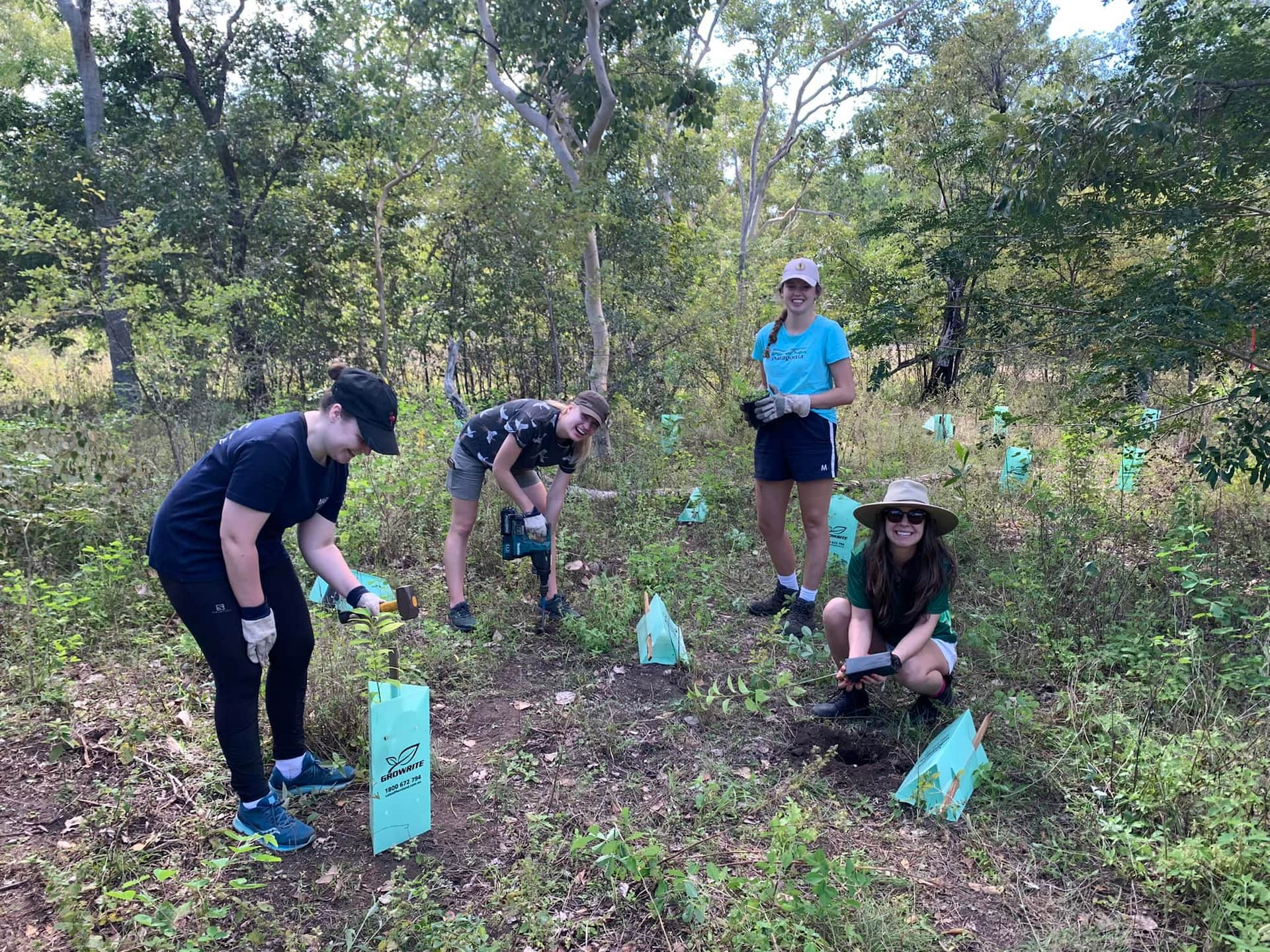
Native trees were planted on the campus grounds and attendees learnt about what makes a successful revegetation project.
National Science Week
TropEco staff presented at the JCU Centre for Tropical Environmental and Sustainability Science (TESS) Youth seminar on JCU TropEco sustainability actions to the Cairns community as part of their 2022 seminar series. The seminar was held in National Science week and was a youth-focused environment and sustainability science forum.
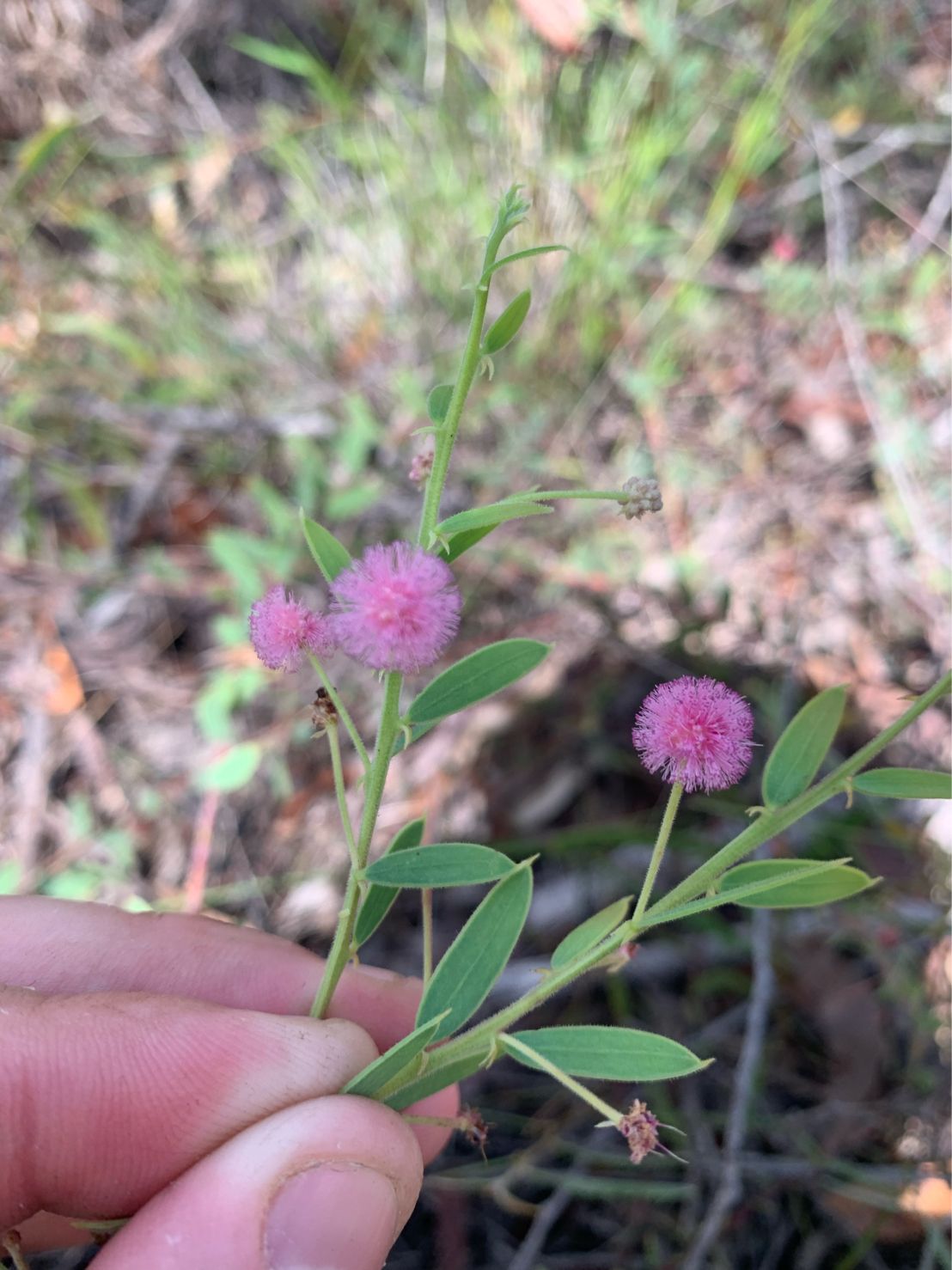
Plant nursery
JCU's nursery houses many rare and threatened species, including some of Queensland’s rarest plants. Many are established in the nursery and then shared with several Australian Botanical Gardens for their conservation programs:
- Critically endangered acacia purpureopetala (purple wattle)
- Restricted gossia lewisensis (Mt Lewis gossia)
- Rare uromyrtus metrosideros (mountain malletwood)
- Vulnerable barongia lophandra
Campus revegetation
Where possible, these species are also grown on JCU's campuses, through dedicated revegetation programs. Since 2021, seeds and cuttings have been collected from wild plants and grown in campus greenhouses.
- Critically endangered backhousia tetraptera (Mt Stuart mystery myrtle) - in 2022, 18 tree saplings were planted in on the Townsville campus adjacent to Mt Stuart within the species’ native distribution.
- Vulnerable eucalyptus paedoglauca (Mt Stuart ironbark) - in 2021 and 2022, 39 trees were planted on campus, including a grove of 33 trees from 5 different parent trees to ensure genetic diversity. The grove will be used as a long-term monitoring plot.
Myrtle rust control
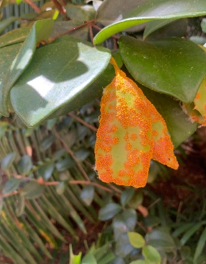
Myrtle rust is a plant disease caused by fungal pathogen austropuccinia psidii, the signs are typically a rusty golden coat on the leaves of the host. The pathogen is restricted to members of the Myrtaceae family and is believed to have been introduced from South America in 2010.
JCU's Myrtle Rust Initiative aims to develop an on-campus conservation ark for species most at risk. The project involves ex-situ conservation of wild collected at-risk Myrtaceae from Mackay to Bamaga, some of which were already recognised as endangered before the rust’s presence.
The program is run in collaboration with government and conservation bodies, and is an open teaching program for students and staff at JCU. To date over 100 clones across over 70 species have been collected, with the end goal being 100 species and over 500 clones.
Orpheus Island Research Station
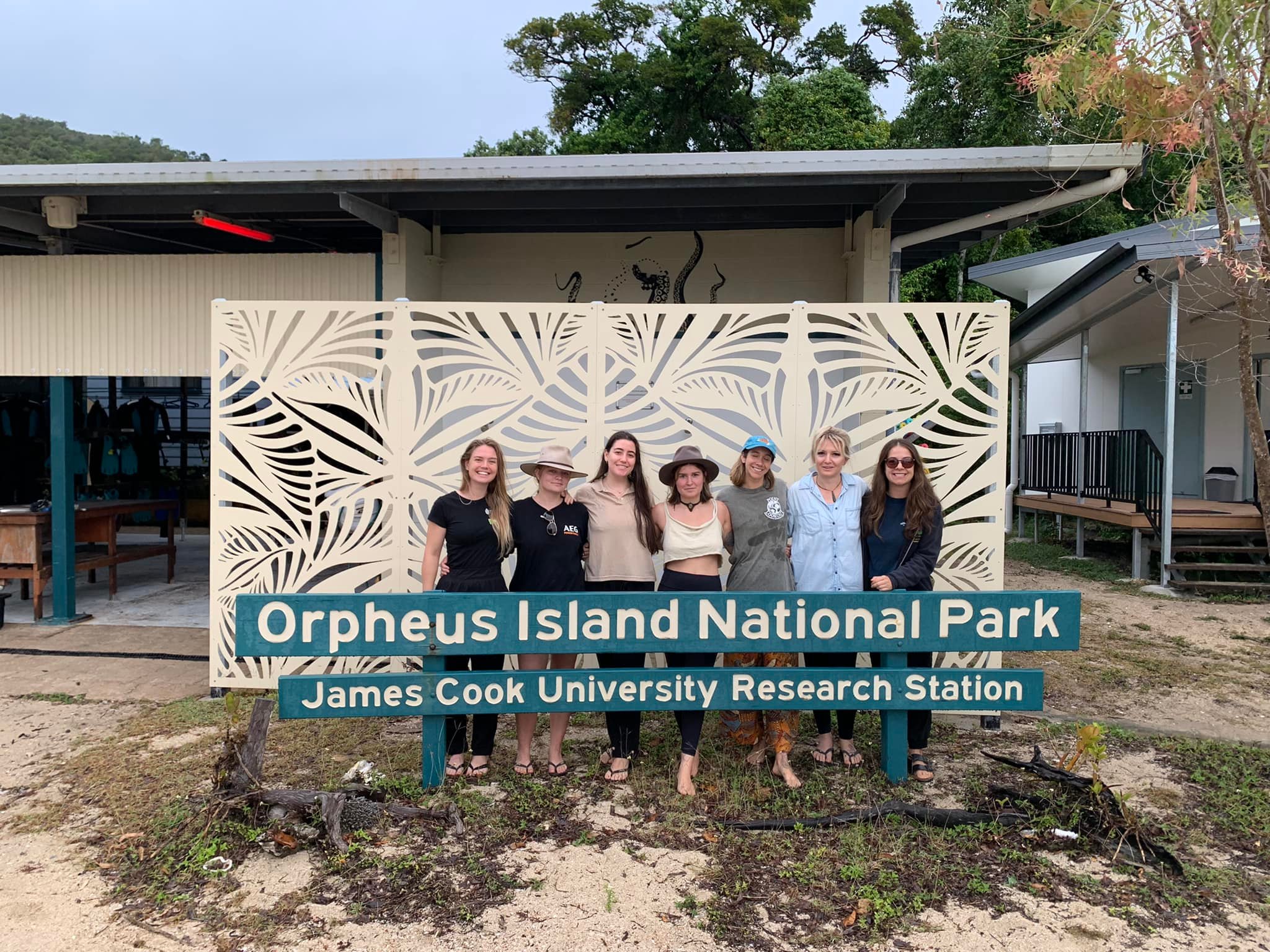
Teams from TropEco and the Australian Tropical Herbarium regularly monitor the JCU research station and nearby island areas to identify threatened plant species, monitor seedling and tree health and remove weeds including prickly pear.
In 2021, TropEco student volunteers spent a week on Orpheus Island removing invasive plant species. Each year the island is also surveyed for vulnerable tree species Buchanania mangoides, to monitor seedling recruitment and adult tree health.
TropEco student volunteers returned to Orpheus Island in 2022 and spent a week eliminating invasive weeds and monitoring are plant species.
Goondaloo Creek
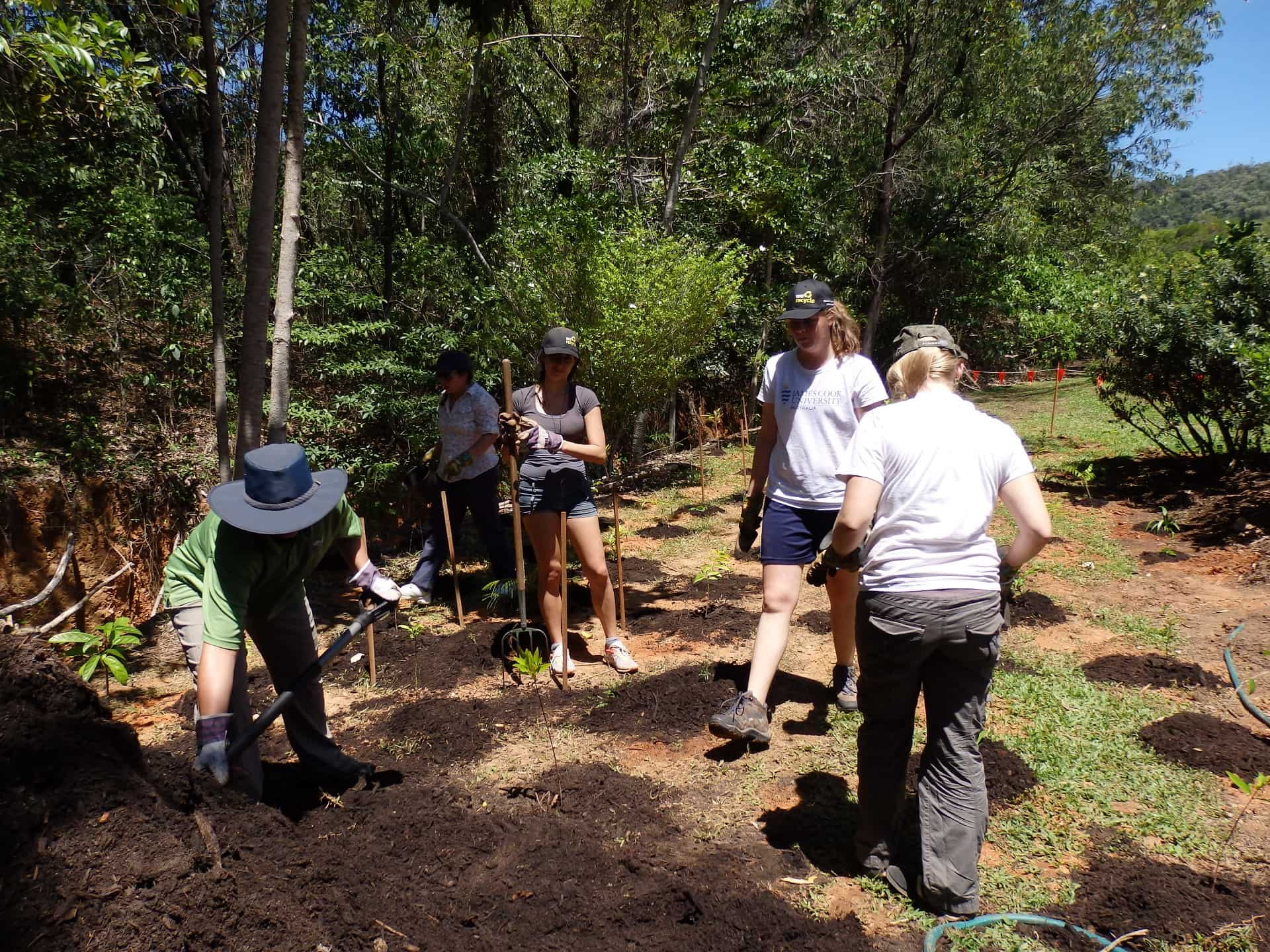
TropEco worked alongside Townsville City Council, Townsville University Hospital and Coastal Dry Tropics Landcare groups to make improvements to Goondaloo Creek – a freshwater creek ecosystem running through the JCU campus and University Hospital grounds.
The TropEco team contributed around 700 native plants and volunteer labour to help repair creek bank erosion and revegetate surrounding land. In recent years, JCU has added thousands of plants to revegetate the Goondaloo Creek area and removed hundreds of invasive plant species.
Another collaborative project in May 2021 focused on the shared freshwater ecosystem through the Townsville University Hospital land and JCU's Bebegu Yumba campus. This work was part of the Townsville City Council’s Riparian Recovery program and involved restoring erosion damaged creek banks and revegetation. JCU TropEco donated 700 native plants for the revegetation site.
JCU has planted over 2000 plants in the riparian area along Goondaloo Creek since 2021, removed over 100 invasive trees, and aims to continue restorative works on the creek to maintain this freshwater ecosystem. This creek is a blend of vine thicket and dry rainforest, and species that fit these unique ecosystem have been collected and grown on for revegetation.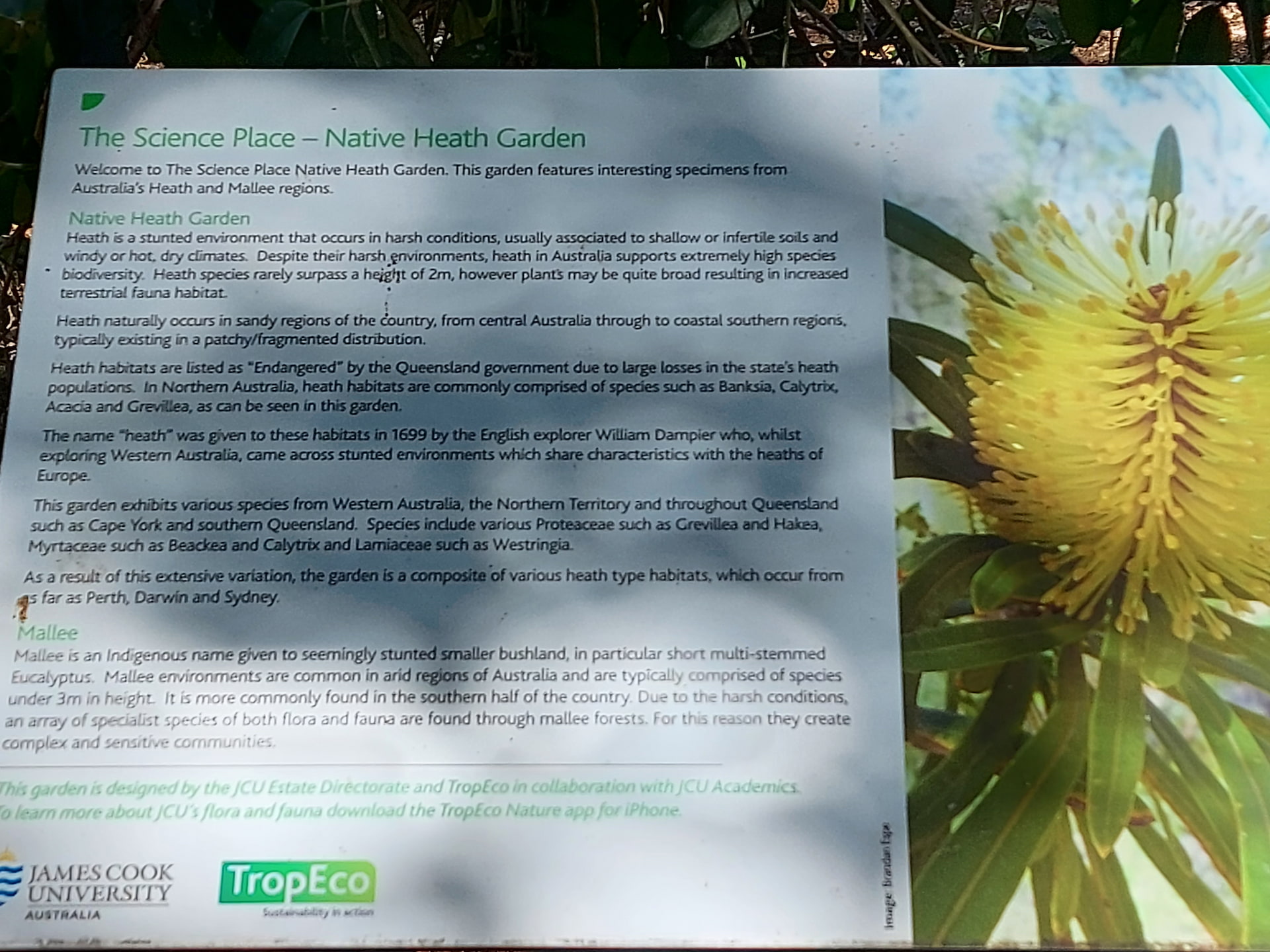
Water-wise gardens
In 2018 a drought-tolerant garden of native xerophytic plants was established on the Bebegu Yumba Townsville campus by the TropEco team. The garden is located next to the Science Place complex and is part of the green areas of the campus open for all visitors to enjoy. This garden does not require irrigation and features some rare plants from Queensland’s dry tropics regions which attract local birds and insects.
New plants are introduced to the garden each year and maintenance is carried out regularly. Wetting agents have also been widely applied across campus gardens, along with mulch and bio-inoculants to increase soil health and minimise water use.
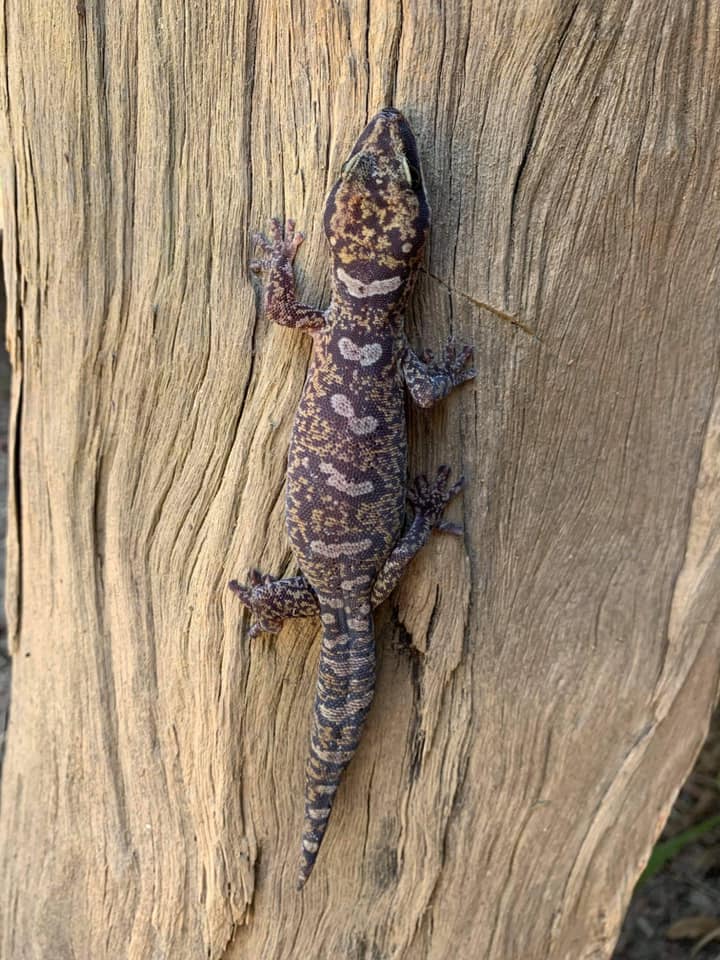 Biodiversity monitoring
Biodiversity monitoring
TropEco monitors its campuses and research stations for native wildlife throughout the year. Wildlife cameras are used to record animal activity over time, helping to identify some rare and threatened species in the region.
Initiatives include a flora and fauna monitoring visit in 2021 to Kirrama Field Station.
Plants for homes
Just as JCU has contributed several thousand plants to rehabilitate degraded areas and create new landscapes, the selection of plants and other structures was equally important for supporting native wildlife.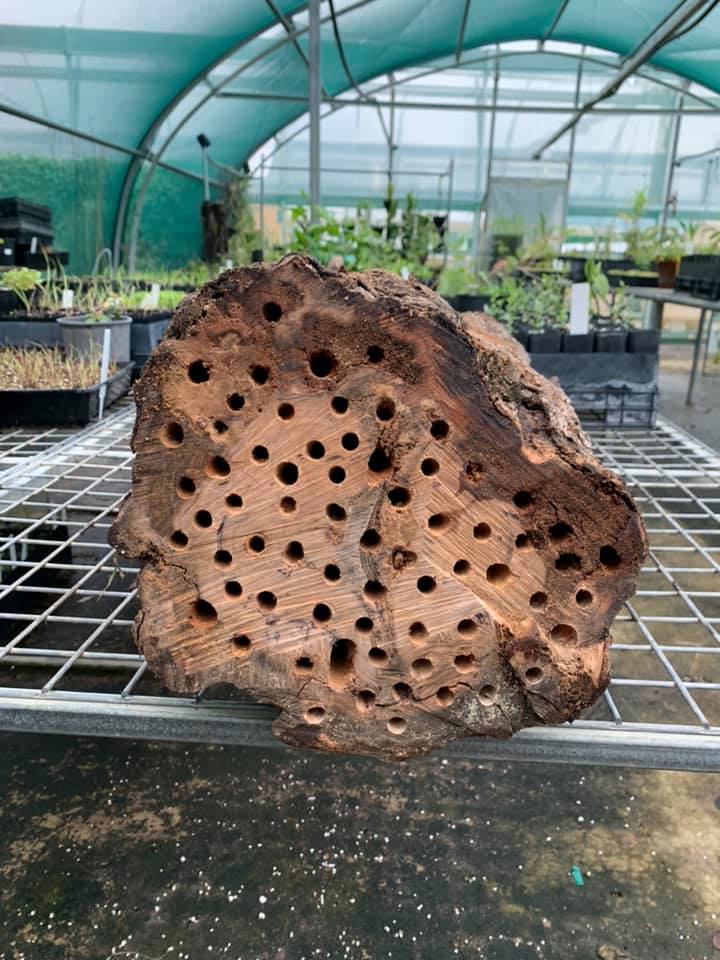
Native plants and nesting boxes were added to provide homes for birds, bees, bats and lizards, suppress weeds and control erosion. Others were important for supplying Indigenous food or medicines.
In 2022 TropEco staff made bee hotels for native stingless bees from native tree timber, and placed in campus gardens to encourage native bees to establish on the JCU campus.
Ponds and bird baths have been established on JCU campuses to provide water for wildlife during the dry season and grow native aquatic plants. A skink garden has been constructed providing habitat and cover for local native reptile species.
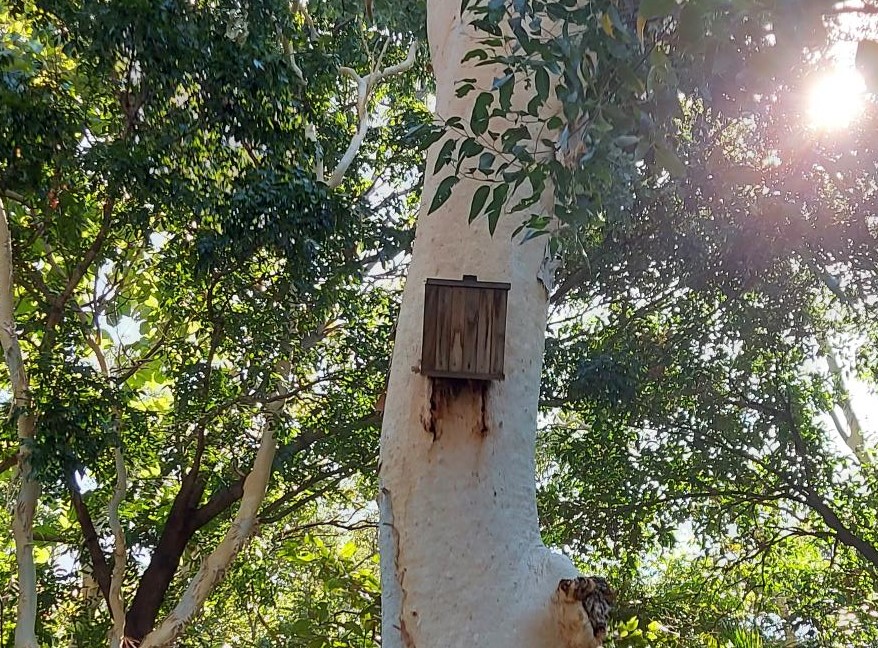 Resting or nesting
Resting or nesting
JCU tropical campuses are inhabited by a wide variety of animals.
The TropEco team uses signage to help native pythons move through the campus safely and to protect the on-ground nesting sites of bush stone-curlews and masked lapwings.
Local creek surveys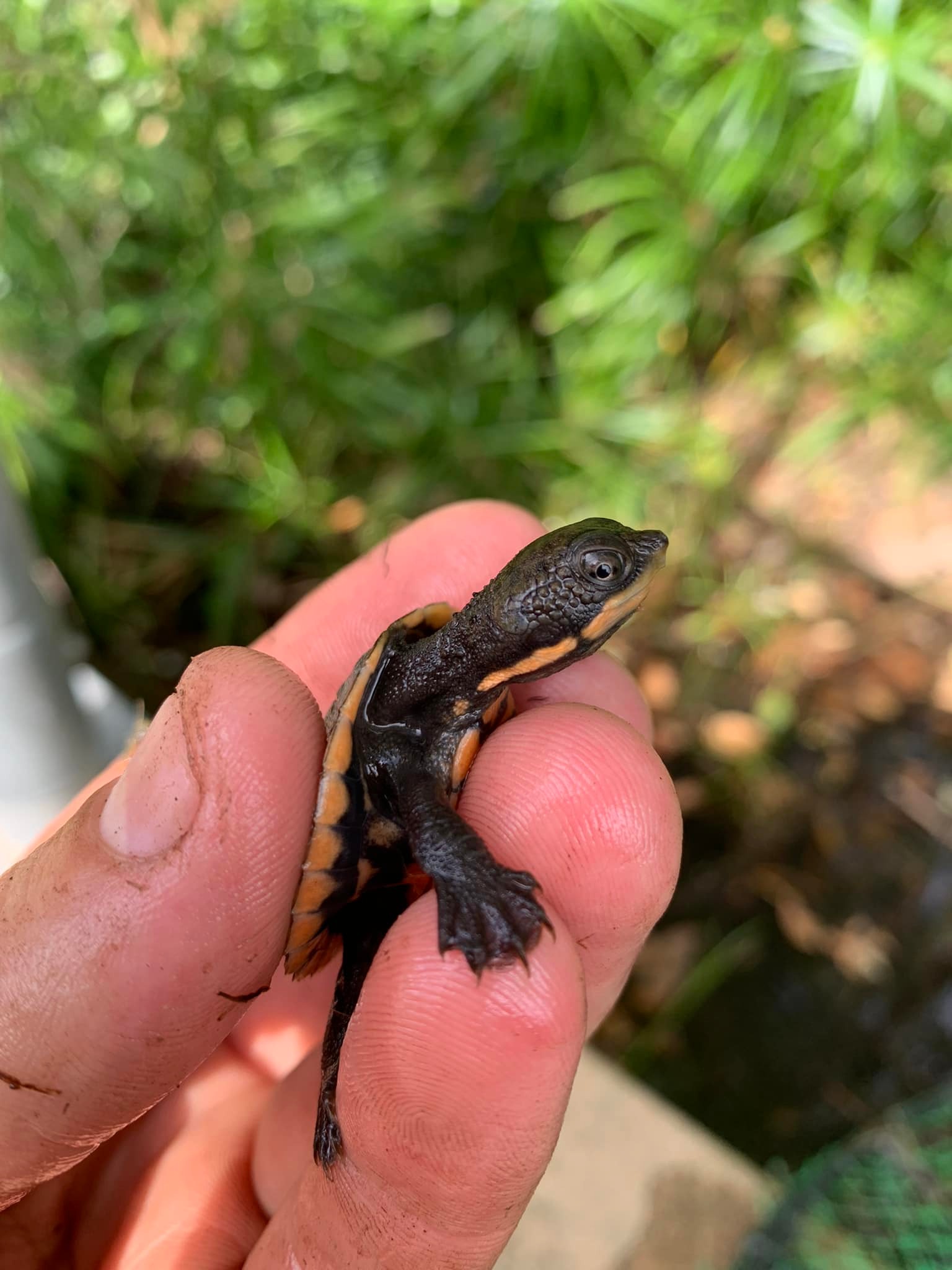
Gonndaloo and Wadda-mooli creeks on the Bebegu Yumba campus in Townsville are surveyed in January and April each year. Freshwater biodiversity is surveyed, and water quality assessed to monitor pH and nitrites.
Fish, reptile, amphibian and crustacea, insect and aquatic plant species are recorded, and invasive species including cane toad eggs are removed.
Fish migrations
The Townsville campus has installed several Fish Ladders to ensure the uninterrupted passage of native fish to their spawning grounds during the wet season. Each year the fish ladders are monitored for effectiveness and maintenance.
Additionally, water berms have been installed in campus creeks to slow flow, assisting migratory species in their journey, as well as decreasing bank erosion.